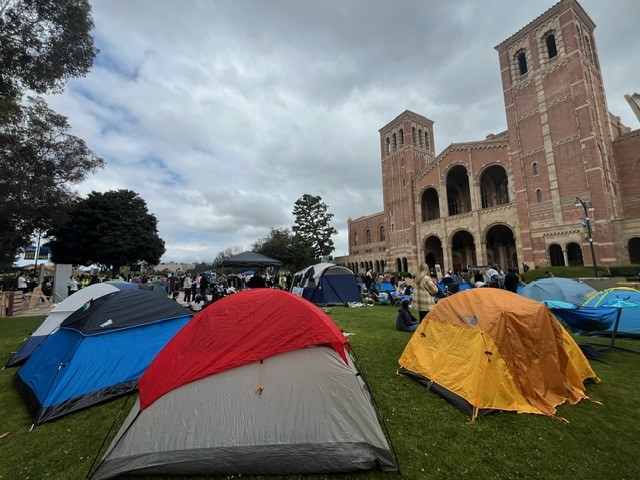Metropolitan Water District officials were telling Southland residents Saturday not to worry about an algae bloom in part of the state water system that may affect the taste of tap water in parts of four Southern California counties for weeks.
The musty, earthy taste could persist for weeks but poses no health hazard, according to the MWD, the main water wholesaler in Southern California.
The problem could affect the smell and taste of tap water in parts of eastern Los Angeles County, as well as in parts of Orange County, western San Bernardino County and southwest Riverside County, according to the MWD.
"The earthy taste and smell stem from an especially large and persistent algae bloom in the east branch of the State Water Project," said Jim Green of the MWD.
"Metropolitan receives a major portion of its water through the SWP's east branch, which includes Silverwood Lake in the San Bernardino Mountains, and we are working with the state Department of Water Resources which owns and operates the state system to address the situation," Green said. "Consumers, however, can be assured that the taste-and-odor issues they may be experiencing in their tap water do not pose any health risks."
Green suggested refrigerating drinking water to help improve its taste until the problem diminishes.
For the third time in three weeks, DWR water quality experts Thursday applied copper sulfate to control the algae bloom. Officials stressed that the treated water is safe for consumers as well as boaters and swimmers at Silverwood and downstream at Lake Perris. Fish and wildlife also will not be impacted.
Local
Get Los Angeles's latest local news on crime, entertainment, weather, schools, COVID, cost of living and more. Here's your go-to source for today's LA news.
Metropolitan also has reduced deliveries from Silverwood Lake, which supplies the district's F.E. Weymouth Water Treatment Plant in La Verne and Robert B. Diemer plant in Yorba Linda, which together provide treated drinking water to about 7 million people in the affected areas.
According to the MWD, the cause has been identified as 2- methylisoborneal, or MIB, a compound produced from the growth of certain algae in freshwater throughout the world. Typically, MIB levels increase when warmer weather accelerates the growth of algae, Green said.
"Unfortunately, MIB is a noticeable needle in the haystack," he said.
"People with sensitive taste and smell can detect the compound in water levels as low as 5 parts-per-trillion. However, water from two treatment plants have experienced MIB concentrations as high as 20 parts-per-trillion," he said. "By comparison, one part-per-trillion is equivalent to just 10 drops of MIB in enough water to fill the Rose Bowl."
MWD supplies water to the city of Pasadena, Foothill Municipal Water District, Upper San Gabriel Valley Municipal Water District, Three Valleys Municipal Water District in eastern Los Angeles County; Inland Valley Utilities Agency and Cucamonga Valley Water District in western San Bernardino County; Eastern Municipal Water District in western Riverside County; and the city of Huntington Beach, the Municipal Water District of Orange County and Irvine Ranch Water District.



